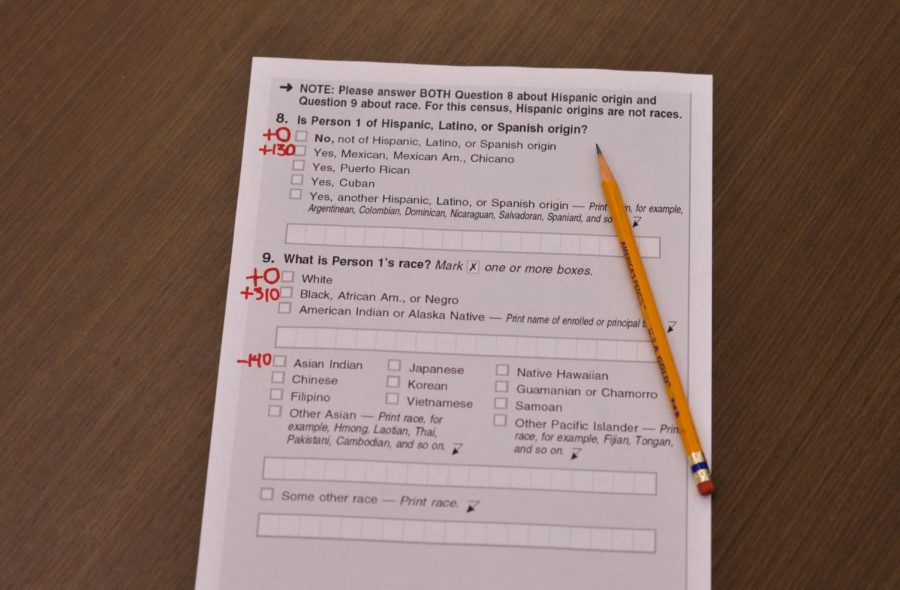Affirmative action in SAT hurts education standards, minorities
Certain racial groups benefit while others are hindered when scores are manipulated
OLIVER MCKENNA | DAILY EVERGREEN PHOTO ILLUSTRATION
Students in specific racial groups get points added to their scores while others get points taken away in order to promote diversity in colleges that admit them.
September 12, 2018
Your SAT score is one of the most important tickets into college — but sadly, affirmative action has come to affect this. Over the years it has become more and more apparent that the score you get on the SAT that would qualify you for college admission is not equal among different races.
Asian Americans are hit the hardest: they must score on average 140 points more than their equivalent white counterparts, while Hispanic and black students are given leeway with 130-point and 310-point bonuses respectively. Most students are not even aware of this bias.
“Why would they do that?” asked Spencer Murray, an East Florida State College freshman data analysis major. “Don’t you think it’s racist to expect less from other types of people?”
Many people share in Murray’s confusion. While it does seem racist to expect less from certain groups of minorities by adding points to their SAT score, the rationale is clear.
According to the Brookings Institution, “the black-white achievement gap in SAT math scores has remained virtually unchanged over the last 15 years.”
In an attempt to bridge that gap, points are granted to minority groups, or subtracted in the case of Asian Americans.
This Asian American discrimination needs to stop.
The goal of equity should be to add opportunity lost to certain groups of people, not reduce it. Due to affirmative action, however, it is harder for Asians to get into college, and the degree of difficulty does not matter.
Some students who are aware of this discrimination refuse to disclose their race on the SAT, opting to put “other” or “prefer not to answer” instead.
“I knew of this discrimination before, especially because I am Asian,” said Jake Clarke, a University of Washington freshman computer science major. “I thought about marking black on my SAT so I could possibly get extra points, but that would be lying, so I just marked prefer not to answer.”
Students should not have to consider hiding their ethnicity on the SAT to avoid discrimination.
“It’s ridiculous,” Clarke said. “You should not be judged by the color of your skin like [Martin Luther King, Jr.] said, but they are doing just that, to blacks, whites, Latinos, Asians. It’s racist.”
Many other students interviewed on a Discord server shared this disbelief, wondering if this was actually happening. When they saw the statistics and facts they wondered whether or not this had an effect on their chances of gaining admission.
Racism in the name of equality can be seen in other places in the college admission process. In an attempt to “increase diversity” and “advantage those less-advantaged” college campuses take opportunities away from certain groups, stereotyping them into being more “advantaged” or less “diverse.”
In other cases, they provide opportunities to certain groups of people, but is this morally acceptable? The expectation that certain groups will perform worse than their counterparts is racist in and of itself: giving them lower expectations is just the icing on the cake.
As the fight to push affirmative action rages on, colleges should seek to only provide opportunities, not take them away as well. If this does not change then race-based admissions will have certain groups, such as Asians, hiding their ethnicity to avoid the discrimination.





















